[OmniFaces utilities] The
getBookmarkableURL() methods returns the concrete domain-relative URL to the current/given view with the given params URL-encoded in the query string and optionally include view parameters as well. This URL can ultimately be used as redirect URL, or in <form action>, or in <a href>. Starting with OmniFaces 2.1, any parameter with an empty name or value will be skipped. To skip empty view parameters as well, use <o:viewParam> instead.This utility method exist in OmniFaces 2.0, but it was improved in OmniFaces 2.1.
In OmniFaces 2.0, you can use only
Collection<ParamHolder>, while in OmniFaces 2.1, you can use Collection<? extends ParamHolder>.Method - get the concrete domain-relative URL to the current view:
See also: Faces#getContext()
See also: Faces#getContext() | Utils#isAnyEmpty()
Usage:
For those
who are familiar with OmniFaces, ParamHolder interface, and just want to see some
examples of Faces#getBookmarkableURL()
that uses ParamHolder,
please skip the next paragraphs and follow the Examples section below. But, if you have no idea what ParamHolder
is, then you don't know what to pass instead of the Collection<? extends ParamHolder>
params
argument. So, here it is a quick story of it provided by steps:
·
An UIComponent is aware of a converter if
it implements the JSF built-in ValueHolder interface.
·
OmniFaces comes with an extension of ValueHolder,
named ParamHolder.
"This interface represents a
(request) parameter holder which extends ValueHolder
with getName() method to obtain
the parameter name associated with the parameter value and changes the getLocalValue() method to return the original,
unconverted value and changes the getValue()
method to return the converted value."
·
So, whenever you need such a (request)
parameter, you can implement OmniFaces, ParamHolder interface, or
simply extend the OmniFaces, SimpleParam, which provides a simple and
default implementation of it.
·
OmniFaces uses ParamHolder to boost the JSF
default <f:param>
to support a converter. See the OmniFaces, <o:param> component,
which implements ParamHolder.
Now, that
you know what the Collection<? extends ParamHolder> represents, let's
see two examples. In the first example, I'm using SimpleParam as a simple
key-value pair holder (parameter name-value), no converter. After I defined two
such parameters, I'll use the Faces#getBookmarkableURL() to obtain a the
concrete domain-relative URL to the current view with the following
characteristics:
·
the returned URL is a concrete domain-relative
URL to the current view, index.xhtml
·
it will contain two request parameters provided
via SimpleParam: usernr, usertype
·
it will contain the view parameters (suppose we
have two view parameters: name (whose value is evaluated to Rafael text
and surname
(whose value
is evaluated to Nadal text))
import
org.omnifaces.component.SimpleParam;
import
org.omnifaces.util.Faces;
...
SimpleParam
usernr = new SimpleParam("usernr", "one");
SimpleParam
usertype = new SimpleParam("usertype", "master");
Collection<SimpleParam>
params = new ArrayList();
params.add(usernr);
params.add(usertype);
String url =
Faces.getBookmarkableURL(params, true);
The url
will be something like (the important part is the query string):
/app_context-root/.../index.xhtml?usernr=one&usertype=master&name=Rafael&surname=Nadal
The above example uses the folowing SimpleParam constructor:
In the
second example, let's suppose that you have been used <o:param> to
pass some extra parameters into a bean. The main characteristics are:
·
the returned URL is a concrete domain-relative
URL to the current view, index.xhtml
·
it will contain two request parameters provided
via <o:param>: usernr, usertype
·
the parameters values will be converted to upper
case by a custom converter (this will be reflected in the obtained URL)
·
it will not contain the view parameters
So, let's
suppose a form as this:
<h:form>
...
<h:commandButton value="Login"
action="#{loginBean.loginAction()}">
<o:param name="usernr"
value="#{playerBean.un}" converter="myConverter"/>
<!-- #{playerBean.un} evaluated to 'one' text-->
<o:param name="usertype"
value="#{playerBean.ut}" converter="myConverter"/>
<!-- #{playerBean.ut} evaluated to 'master' text-->
</h:commandButton>
</h:form>
Now, in LoginBean#loginAction()
method we can exploit several OmniFaces utilities to obtain the two <o:param>
in a concrete domain-relative URL, like this:
import
org.omnifaces.component.output.Param;
import
org.omnifaces.util.Components;
import
org.omnifaces.util.Faces;
...
UIForm cform
= Components.getCurrentForm();
Collection<Param>
oparams = Components.findComponentsInChildren(cform, Param.class); // see
String url =
Faces.getBookmarkableURL(oparams, false);
The url
will be something like (the important part is the query string):
/app_context-root/.../index.xhtml?usernr=ONE&usertype=MASTER
Note If you need to obtain a concrete
domain-relative URL to the given view (not the current view), just use, getBookmarkableURL(String viewId,
Collection<? extends ParamHolder> params, boolean includeViewParams).
The viewId
must start with a "/".
We can use Faces#getBookmarkableURL()
methods to programmatically obtain an URL that follows to be returned by a
custom ViewHandler
via getActionURL()
method. Of course, you can find many other useful use cases to these methods.
OmniFaces documentation specifies: redirect URL, <form action>, or in <a
href>. Notice that you can use your own ParamHolder implementations/extensions
also!









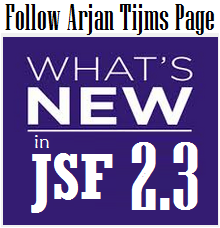

 Arrays
Arrays Converters
Converters





 JSF 2 Tutorials at www.mkyong.com
JSF 2 Tutorials at www.mkyong.com  JavaServer Faces (JSF) Tutorial
JavaServer Faces (JSF) Tutorial 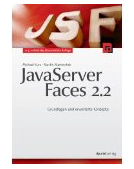
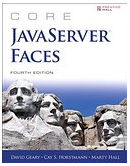
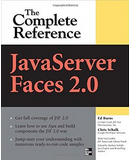
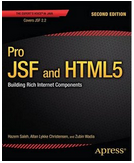








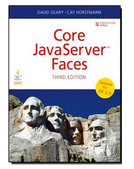

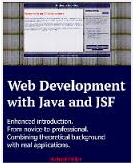
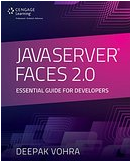

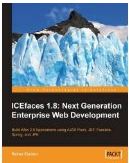




Niciun comentariu :
Trimiteți un comentariu